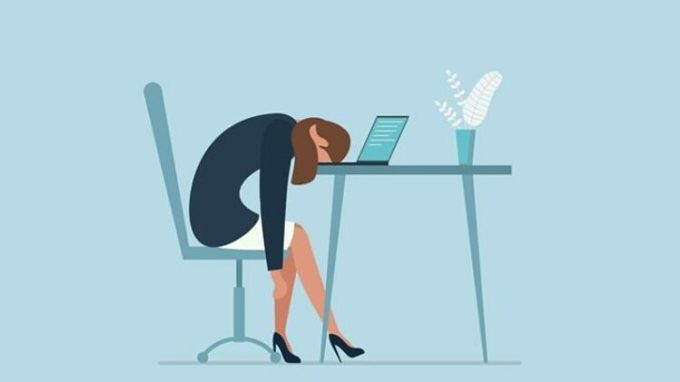The upcoming Tet holiday is also the peak business season. Although the leaders assigned many more tasks, Yen, 43 years old, found it difficult to concentrate, her mind only thinking about the Tet holiday.
Nguyen Hai Yen, currently in charge of marketing for a business, is assigned to complete the annual report, operational and financial strategy for 2024, employee evaluation... and dozens of other tasks, but she always feels lethargic and bored.
Women's minds are spinning with how to shop for Tet and give gifts to relatives and partners in the context of economic crisis and reduced income sources.
Not only that, as the eldest daughter-in-law of the family, she plays an important role in organizing meetings, end-of-year and beginning-of-year parties. "Not to mention, every time I try to focus on work, my sisters text me to gossip about Tet or gather to choose clothes and choose a place to do 'makeup' for the company's year-end party, making it impossible for me to concentrate on my work," Yen said, adding that she was recently reprimanded by her superiors for slow work progress.
Similarly, Hanh, 30, who works as a designer, is given a series of tasks during peak hours, but she mostly just spends time shopping online, surfing the internet to find ideas for decorating her home. Due to her neglect of work, every time she sends a design to her superiors, she is asked to revise it because it does not meet the requirements, making her even more frustrated.
Hanh's whole group also had the mentality of wanting to give up. Many people felt exhausted at the end of the year, with a mountain of work piling up but no motivation. "The more the boss urged us, the more tired we became. We just wanted to rest," Hanh said.

The pre-Tet hangover makes many people indifferent, less focused on work or stressed.
Dr. Tran Thi Hong Thu, Deputy Director of Mai Huong Daytime Psychiatric Hospital, said this is called "Holiday Click-off" - a phenomenon of restlessness and excitement before the Tet holiday. As Tet approaches, plans for shopping, giving gifts, bonuses, paying debts, investing... make many people feel anxious, have difficulty concentrating, leading to a decrease in work efficiency.
Most people spend more time thinking about Tet and Tet activities than actually caring about work. At this time, the brain will make decisions that cause all work thinking to fall into a state of delay, sluggishness with many quiet moments interspersed during working hours.
Others simply feel tired after a year of work, want to "put aside" work and need to rest. Another group is assigned too much work, causing stress, unable to concentrate on completing it, this makes them lose focus, lose enthusiasm, become depressed and look forward to Tet even more.
Holiday Click-Off can be considered a global phenomenon. A Peakon survey of 12,000 office workers in the US, UK and Germany found that more than 50% of American employees began to lose focus two weeks before the Christmas and New Year holidays. Meanwhile, British employees "held on" for three more days and began to lose productivity from December 18. This survey also showed that young employees, especially Gen Z, are likely to "turn on" party mode earlier than older employees.
This feeling seems harmless, but if it lasts for a long time, it can directly affect your work and your ability to advance, thereby affecting your finances and health.
To overcome this syndrome, Dr. Thu advises everyone to clean up the workspace to be neat and tidy. This is one of the factors that inspire and motivate to complete the job well. Note, do not let food appear in sight because they can be tempting and distract you. Instead, put a small bottle of water on the table to replenish water, increase energy, and help the body stay awake.
Taking breaks is essential to feel refreshed and avoid burnout. It has a positive impact on concentration and productivity, especially when you are “stuck” on an idea or problem.
A method that many people apply is the 25/5 time management technique, which means that for every 25 minutes of work, you should take a 5-minute break. After 4 times, you can take a longer break, about 20 minutes. During this time, take advantage of the time to enjoy yourself by moving, exercising, being creative, and socializing to relax your body and mind and regenerate energy. When you return to work, you will be excited to tackle the next tasks.
You should also not work after office hours but spend time with your family, this is the best way to recharge. Along with that, plan your work, divide your time reasonably and share your work with others if you are overloaded. For example, the technique of making a "to do list" for the day, clearly stating the important things that need to be solved soon, the things that can be delayed.
Try to look at things from a more positive perspective, such as looking at the positive things that the holiday season brings. If you feel that the stress is too much and affecting your life, seek help from a mental health professional.
"Nobody is perfect, stress before the holidays is normal, the important thing is to know how to manage and enjoy this time as comfortably as possible," said Ms. Thu.
TB (according to VnExpress)